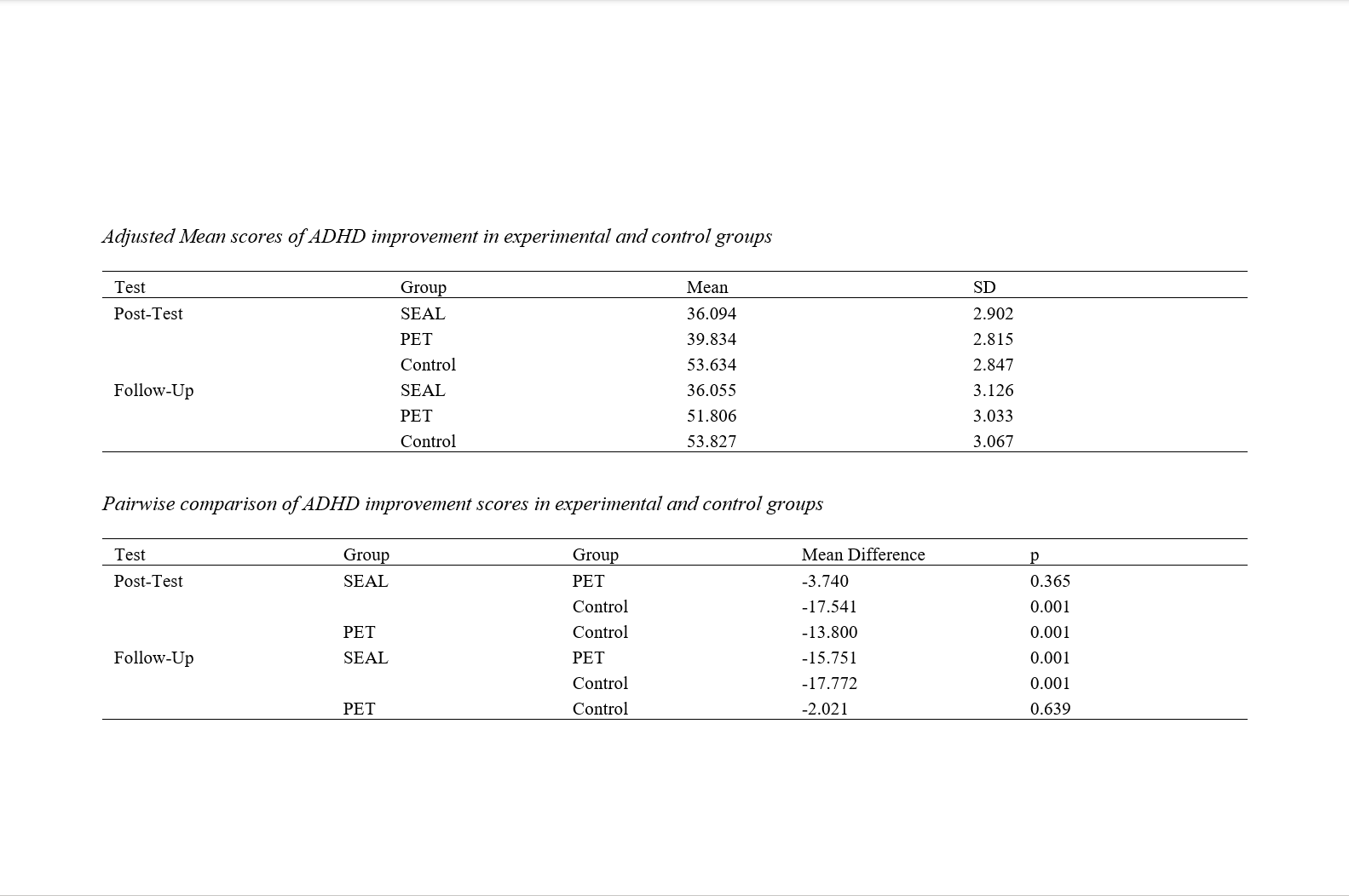Comparing the Effectiveness of Social-Emotional Aspects of Learning (SEAL) and Parent Effectiveness Training (PET) on Improvement of symptoms of ADHD, in 6 to 12-Year-old Children with ADHD
Keywords:
Social-Emotional-Learning, Parent Effectiveness, Attention Deficit and HyperactivityAbstract
Objective: The purpose of this study is comparing the effect of Social-Emotional Aspects of Learning (SEAL) package with Parent Effectiveness Training (PET) package on the improvement of attention deficit hyperactivity disorder (ADHD) symptoms in children aged 6-12 years with ADHD.
Methods and Materials: This research was semi-experimental and a pre-test-post-test design was used with a control group (2 experimental groups and one control group). The statistical population of this research was all male and female students aged 6-12 years old with ADHD in Isfahan who were studying in the academic year of 2021-2022. The research sample was 48 parents and students with ADHD who were purposefully selected and randomly placed in groups. Students were selected according to the criteria for entering the research. Each training package included 8 sessions for children and parents, that SEAL package for children and PET package for parents. The Child Symptom Inventory-4 (CSI-4) questionnaire (Mohammed Ismail & Alipour, 2002) was used to collect data. To analyze the data, after checking the assumptions of the parametric tests, ANCOVA and MANCOVA analysis were used using SPSS-23.
Findings: The findings showed that there is a significant difference between the average scores before the intervention and after that. But after the intervention, a significant difference observed in the average scores of the experimental and control groups. (P>0/05)
Conclusion: It can be concluded that the improvement of symptoms of ADHD after the training programs in the experimental group is different from the control group. So, the programs improved the symptoms of ADHD.
Downloads

Downloads
Additional Files
Published
Submitted
Revised
Accepted
Issue
Section
License
Copyright (c) 2024 Elham Iravani (Author); Salar Faramarzi (Corresponding Author); Hasan Rezaei jamaloei (Author)

This work is licensed under a Creative Commons Attribution-NonCommercial 4.0 International License.








